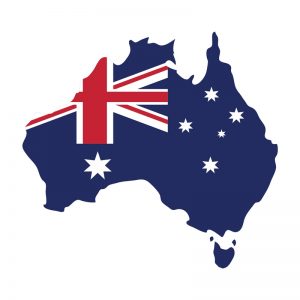
Can I say that my goods are ‘Made in Australia’?
Can I say that my goods are ‘Made in Australia’?
The Australian Competition and Consumer Commission (‘ACCC’) is urging businesses to review any ‘country of origin’ claims that they have made to ensure compliance with the Australian Consumer Law (‘ACL’). The ACL contains prohibitions against misleading and deceptive conduct generally, and also specifically in relation to the place of origin of goods and the nature, manufacturing process or characteristics of any goods.

It is a well-known fact that consumers can be influenced by several factors when purchasing goods, including claims about where a product was grown, produced or made. If your business represents that its goods originate in a particular country this statement must be clear, accurate and truthful. Any claims that are made about the origin of goods must have a reasonable basis.
A country of origin claim can be made using words and/or pictures. It may include an express statement such as ‘Made in Australia’, ‘Manufactured in Australia’ or be implied, such as having. product packaging with a map of Australia or the Australian flag, which could easily be interpreted as implying that the product is of Australian origin.
When is a Country of Origin Statement Valid?
To be able to safely claim that a product was made in a particular country, any imported ingredients or components must undergo a fundamental change in nature, identity or essential character. Minor processing which only changes the form or appearance of the imported goods will not be enough to justify a ‘made in’ claim. For example, importing fruits from Thailand and simply cutting or mixing them together in Australia before selling them as fruit salad which is ‘made in Australia’ would be a breach of the ACL because the fruits have not fundamentally changed in nature in Australia.
If a reasonable conclusion from the use of words or images is that a product was grown, made or produced in a particular country when that was not technically the case, there is a risk of breaching various sections of the ACL. It is not an excuse to say that you ‘didn’t know’ that your country of origin claim was misleading.
But I thought that my business was deemed to manufacture imported goods?
Interestingly, the Australian Consumer Law defines ‘manufacturer’ as not only a person who grows, extracts, produces, processes or assembles goods, but a person that:
- holds himself or herself out to the public as the manufacturer of goods;
- allows their name, brand or mark to be applied to goods; or
- imports goods into Australia, where the manufacturer of the goods does not have a place of business in Australia.
However, just because you may be deemed to be the manufacturer of goods that are imported from overseas because the true manufacturer does not have a place of business in Australia or you held yourself out as the manufacturer, this does not give you the right to claim that the goods were actually manufactured in Australia, unless of course the nature of the goods fundamentally changed when they arrived in Australia. In our view, the definition of manufacturer in this context relates to the fact that manufacturers are required to meet certain consumer guarantees about the quality of the goods and fitness for use to which deemed manufacturers must adhere.
If you would like discuss your product labelling claims to ensure compliance with the ACL, please contact Peter North (Director) or Caroline James (Lawyer) on 03 9629 9629.
Copyright © 2021 Lewis Holdway Lawyers. Website Design By LGT Digital








